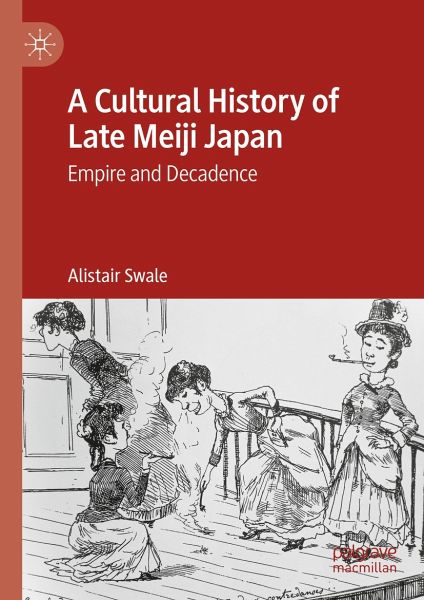
A Cultural History of Late Meiji Japan (eBook, PDF)
Empire and Decadence
Versandkostenfrei!
Sofort per Download lieferbar
96,95 €
inkl. MwSt.
Weitere Ausgaben:

PAYBACK Punkte
48 °P sammeln!
Scholarship on Japan's development from the late nineteenth century to the early twentieth century has, perhaps quite understandably, been dominated by attention given to Japan's emergence as a world power through a succession of military conflicts, and the burgeoning of a modern literary canon. This book argues that the emergence of empire and high culture needs to be more thoroughly integrated with an awareness of popular culture in urban life, a culture that at times exhibited a less than whole-hearted enthusiasm for the trappings of 'civilization', - a culture that was, in a sense, 'decade...
Scholarship on Japan's development from the late nineteenth century to the early twentieth century has, perhaps quite understandably, been dominated by attention given to Japan's emergence as a world power through a succession of military conflicts, and the burgeoning of a modern literary canon. This book argues that the emergence of empire and high culture needs to be more thoroughly integrated with an awareness of popular culture in urban life, a culture that at times exhibited a less than whole-hearted enthusiasm for the trappings of 'civilization', - a culture that was, in a sense, 'decadent'. It integrates coverage of popular culture across diverse media and platforms, accentuating the emergence of new modern forms that evolved from the inter-relation between textual, visual and performative traditions such as kodan and gidayu. The commentary is seasoned with reference to contemporary narratives, aiming to capture more 'on the street' perceptions of momentous events such as war and natural disasters, as well as the more arcane or curious media sensations of the moment. These included exposés of scandalous conduct in high places, new fads in popular entertainments and riveting stories of human interest whether it be crime or tragedies of modern urban living.
Dieser Download kann aus rechtlichen Gründen nur mit Rechnungsadresse in A, B, BG, CY, CZ, D, DK, EW, E, FIN, F, GR, HR, H, IRL, I, LT, L, LR, M, NL, PL, P, R, S, SLO, SK ausgeliefert werden.












